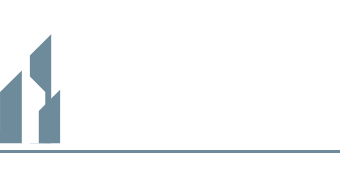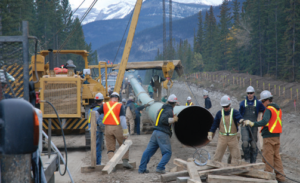The following op-ed, co-authored by ICBA President Chris Gardner, first appeared in The Financial Post on June 6, 2019.
 This week, the Senate of Canada began third reading of Bill C-69. When the government commenced the regulatory review process in 2016, Canadians were promised legislation that would restore public trust, introduce new, fair processes, and get our resources to market. The Bill C-69 that the House of Commons sent to the Senate fell far short of that promise. If passed, it would only cause increased uncertainty for major infrastructure projects — projects that are essential to delivering economic growth and a high quality of life for all Canadians.
This week, the Senate of Canada began third reading of Bill C-69. When the government commenced the regulatory review process in 2016, Canadians were promised legislation that would restore public trust, introduce new, fair processes, and get our resources to market. The Bill C-69 that the House of Commons sent to the Senate fell far short of that promise. If passed, it would only cause increased uncertainty for major infrastructure projects — projects that are essential to delivering economic growth and a high quality of life for all Canadians.
Let us be clear and unequivocal. We believe in the value and importance of proper environmental-impact assessment processes that are robust and science-based, and in the value of sustainability in our operations. These things are fundamental to us.
Bill C-69 caused us, and Canadians across the country, great concern when it was introduced in February 2018. It fuelled greater uncertainty in project assessment and review processes. It introduced longer timelines for some projects, and vague criteria that would increase the risk of legal challenges. It substantially increased ministerial discretionary powers.
When the House of Commons standing committee on environment and sustainable development studied Bill C-69 last spring, it did not address the fundamental issues that many had identified with the bill. In fact, the committee amendments made it even less likely that major infrastructure projects would be built, and put at risk the investment needed for Canada to create the jobs and government revenues that support our quality of life.
Fortunately, the Senate, and specifically, the standing Senate committee on energy, the environment and natural resources (ENEV), composed of senators from across the country, with different political perspectives, decided to take a comprehensive look at the Bill C-69 sent to them by the House of Commons.
ENEV members consulted extensively with a broad cross-section of Canadians across the country. Members of this committee travelled to locations from British Columbia to Newfoundland. They heard from individuals, associations, companies and non-governmental organizations. They heard from premiers and cabinet ministers, lawyers and academics. And what they heard convinced them to undertake a multi-partisan effort to improve the deeply flawed Bill C-69.
Working together, members of the ENEV committee examined hundreds of proposed changes and recommended nearly 200 amendments to Bill C-69. These amendments were proposed by members of the Independent Senators Group, Liberal, Conservative and non-aligned senators. By diligently applying sober second thought to Bill C-69, these thoughtful public servants have produced a bill that truly reflects the values of Canadians and deserves to be approved substantially as-is by the Senate, and then by the House of Commons.
Is the new Bill C-69 perfect? By no means. For industry, there will remain increased risk when proposing major infrastructure projects. There is still a great deal of uncertainty about how the new agencies and processes created by Bill C-69 will work and how proponents will be able to navigate the new impact-assessment processes. However, what the Senate has done is make it much more likely that new projects will be proposed and built, creating jobs and government revenues while protecting our environment.
Communities, businesses and families all over the country are feeling the strain of Canada’s failure to provide a clear path to approval for major infrastructure projects. Investment and jobs are being re-directed to other countries where there is greater predictability in the regulatory process and where there are greater opportunities for investors — investors who would otherwise be coming to Canada.
We can revitalize our reputation as a great place to do business. It is essential that we do so for the long-term livelihood and prosperity of all Canadians.
The ENEV committee has done Canada a great service and positioned the federal government for success by shaping a Bill C-69 that comes closer to achieving the original objectives. We urge the full Senate, and the House of Commons, to accept this improved version of Bill C-69 to ensure a better future for Canadians.
- Wendy Zatylny, president, Association of Canadian Port Authorities
- Sandip Lalli, president and CEO, Calgary Chamber of Commerce
- Tim McMillan, president and CEO, Canadian Association of Petroleum Producers
- Chris Bloomer, president and CEO, Canadian Energy Pipeline Association
- Timothy M. Egan, president and CEO, Canadian Gas Association
- Bob Masterson, president and CEO, Chemistry Industry Association of Canada
- Tristan Goodman, president, The Explorers and Producers Association of Canada
- Chris Gardner, president, Independent Contractors and Businesses Association
- Gary Mar, president and CEO, Petroleum Services Association of Canada
 DELTA—Sixty years ago, on May 23, 1959, the Massey Tunnel opened to traffic. Today, thousands of commuters celebrated Massey’s 60th birthday by waiting up to 60 extra minutes in its traffic.
DELTA—Sixty years ago, on May 23, 1959, the Massey Tunnel opened to traffic. Today, thousands of commuters celebrated Massey’s 60th birthday by waiting up to 60 extra minutes in its traffic.



